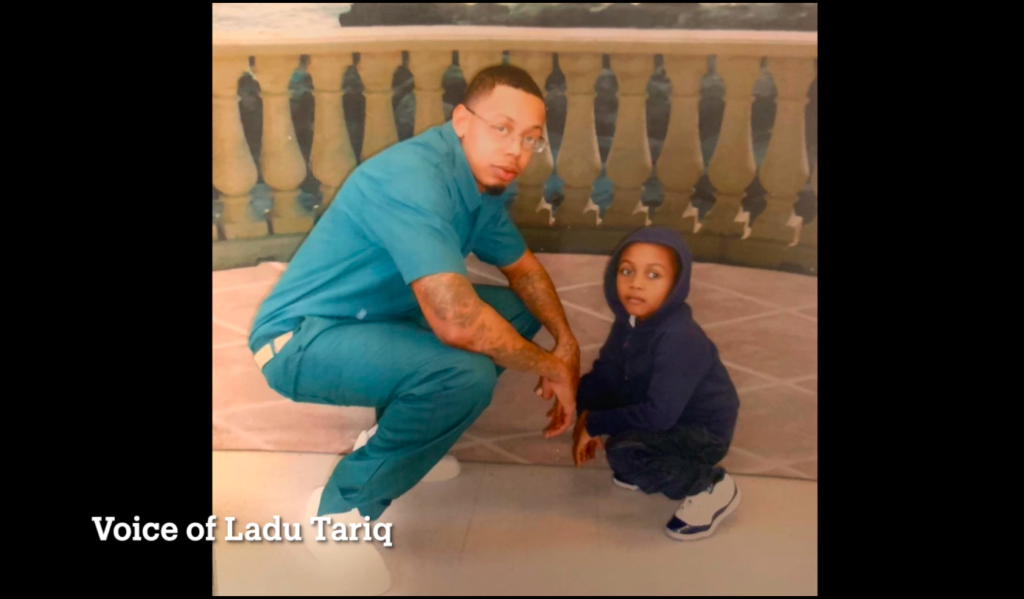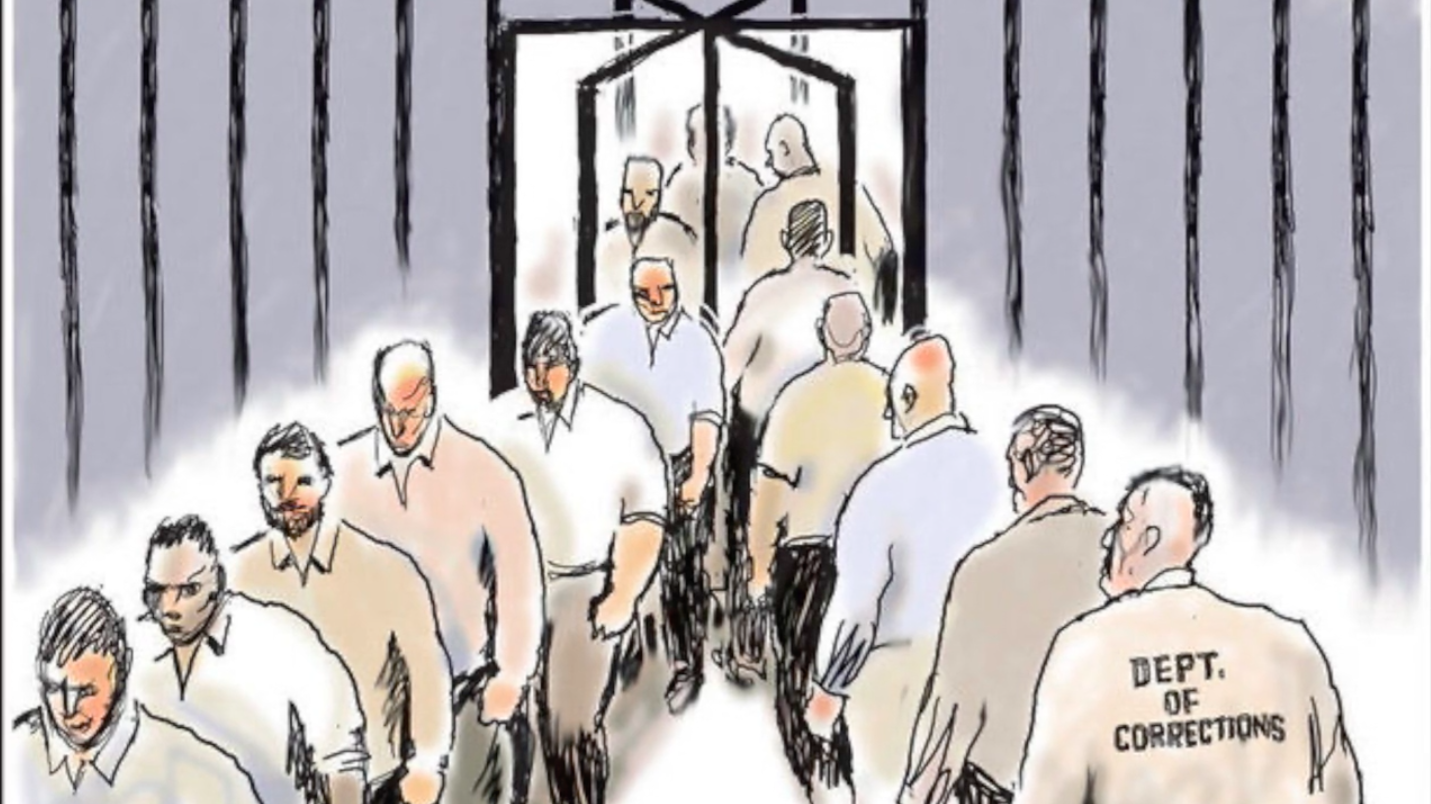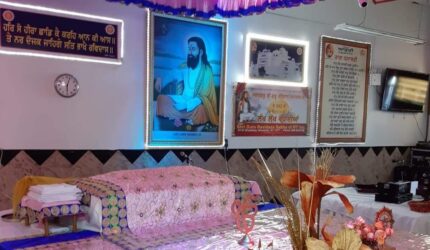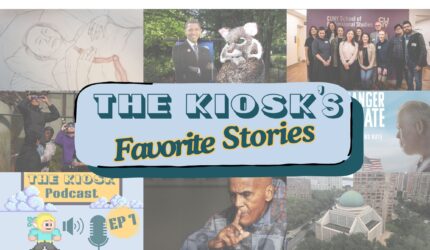
What is life like after prison? For her capstone project, Sharema Hill, who graduated in spring 2024 with her BA in Communication and Media at CUNY SPS, wanted to learn about the challenges and successes Black men face after being incarcerated.
Before returning to school, Hill worked as a corrections officer in Rikers Island, New York City’s largest jail. During her four years there, she witnessed daily life in prison, where conditions for inmates and staff alike were often difficult. Despite the fact that those being held at Rikers are awaiting trial, and therefore presumed innocent, conditions are notoriously bad for inmates. Meanwhile, her uncle and two of her cousins had been inmates in federal prison elsewhere in the country.
“Strangely enough, all the women in my family were law enforcement, but then some of the men in my family would find themselves in criminal activity,” Hill said. “I have a cousin that’s a cop, she’s a sergeant…So you mimic the things you see, like role models. It was the same cycle with different paths.”
Hill, who also worked as an NYPD safety agent before starting at Rikers, saw this cycle emerge over time as members of her family seemed to adhere to traditional gender roles with the men turning to crime, mainly drug trafficking, and women turning to steady work in law enforcement as a means of supporting themselves.
“Gender roles were so dominant growing up, especially in our community, that now that I’ve lived in different places and work [at] different places, your hero can be a man if you’re a female [or a woman if you’re a man],” she explained.
Working as a corrections officer gave Hill a different perspective into what her relatives were going through in the prison system, she added. “Actually being an officer, seeing what these people go through every day, living behind these walls, living in these cells, gave me a better understanding of the men in my family because sometimes you just think, ‘Okay, fix your life, what are you doing, why do you keep finding yourself in these situations?’”
For her capstone project, Hill decided to make a 10-minute documentary, “Life After Prison,” to chronicle the story of the three members of her family who went through the system, including her uncle, Laurence Hill, and his son, Ladu Tariq. Hill made the film herself with the help of her capstone advisors, telling the story through photos and interviews with family members.
“I interviewed my uncle and his son, because combined together they did 22 years in a federal prison,” Hill explained. “I was just looking at it like, ‘Is it a cycle, or is it something that could have been prevented?’”
Laurence served time for drug trafficking to make ends meet when he suddenly found himself as a single dad with three young children. His fiance had a brain aneurysm while in labor and passed away unexpectedly. The couple already had two children to care for.
“He didn’t want to burden anyone…You can’t be less of a person or a man because you’re asking for help,” Hill said. “So you turn to crime. Maybe if he focused on having therapy…it’s okay to get help or have resources. There are places you can go to feed your kids or get shelter because you’re a widower too. It’s easier for women to have that help if they lose a husband, [but] what about the men that lose women and have to be single guys?”
Interviewing Laurence for the documentary, Sharema heard his side of the story in more depth for the first time. “My uncle told me he never really got to mourn her till he was in prison,” she said. “He cried, he was alone in his cell and he cried.”
“He felt like there was no other way to take care of his son as a single parent, he had to survive the fastest way,” she continued. “Then he found his son [Ladu], which is my cousin, he was just following what his dad did. He saw how his father maneuvered [the system through criminal activity], so he thought it was the right thing to do.”
When Laurence’s sentence came to an end, it was difficult to find a job, especially because convicted felons are required to share their felony on job applications. “It’s like there’s no real second chances for them. It becomes 10 times harder.”
When Hill asked her three family members about life after prison, the answer was clear: “They all said that they didn’t feel like jail prepared them for rehabilitation or re-entering society.”
However, Hill’s documentary exposes the injustices of the prison system just as much as it highlights the joys of everyday life with family after being released, as well as possibilities for success and fulfillment in the professional world. In the documentary, Hill also chose to tell the story of Cloudy Donut, a vegan donut shop in Baltimore and Brooklyn founded by Derrick Faulcon, who was incarcerated for 11 years but used his freedom to start his own business and give back to local communities.
Making the documentary allowed Hill to look at her family in a different way, she said. “[It] really made me think about the men in my family and maybe hopefully breaking generational curses by having them talk about it with us so we can have a better understanding.”
Hill also identified with the challenges of life after prison through her own time being surrounded by other corrections officers and inmates for so many years. Therapy was a particularly healing process in the aftermath of switching jobs and going back to school, a process that had been delayed in the past by losing other family members as well as the birth of her son.
“Going to therapy made me feel like, ‘Okay, there is life after corrections,’” she explained. “If I didn’t go to that therapist, my son could probably have been in the same cycle as some of the kids in my family.”
Now that she’s a CUNY SPS graduate, Hill plans to combine her passions for criminal justice, communications, and media to become an investigative journalist focusing on criminal activity, she said.
Watch the film below.





